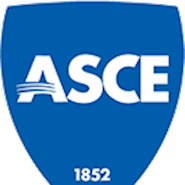Tung “Steve” Au, emeritus professor in the Carnegie Mellon Civil and Environmental Engineering and Engineering and Public Policy departments whose tenure spanned 35 years, has died. The ASCE Distinguished Member was 98 years old.
Au, P.E., Dist.M.ASCE, served on the Carnegie Mellon faculty with great distinction from 1957 until his 1992 retirement, touching the lives of many students, staff members, and fellow instructors. As the first faculty member many students met, he provided helpful, reassuring guidance. For those who later joined the faculty and got to know him as a colleague, his intellect was a sharpener for their own. As well, he had an impressive ability to remember well every student he ever advised.
To this day, Carnegie Mellon civil engineering students learn at the Tung Au Lab, opened in 1988. At the time of its dedication, former department head Paul Christiano said, “Whenever I meet civil engineering alumni who graduated in the last 30 years, invariably they ask about Professor Au and … relate a personal story about him: how he helped them adjust to the rigors of college; or how he helped them acquire a scholarship or find their first job; or how he provided fatherly advice when they needed it.”
He was an internationally recognized engineering researcher and educator. With Carnegie Mellon, Au taught and conducted research across a spectrum of civil engineering topics, with expertise in applied mechanics, structural engineering, systems analysis and design, and construction project management. He was the author or co-author of seven books, including Elementary Structural Mechanics (1963),
Introduction to Systems Engineering: Deterministic Models (with Thomas Stelson, 1969), and Fundamentals of Systems Engineering: Probabilistic Models (with Richard Shane and Lester Hoel, 1972).
Au was an educator at heart. In addition to engineering, he loved history and at times his work helped shape it. His first job was building airfields in Sichuan, China, that were used by the Flying Tigers, U.S. aviators based in China who fought the Axis powers during World War II.
He received numerous honors throughout his career, including being recognized as an Honorary (Distinguished) Member of ASCE in 1991. For Carnegie Mellon, he served as the acting head of civil engineering in 1970-71 and again in 1985-86; chaired various committees for the College of Engineering and the university; and served as chair of the faculty senate.
Au received his bachelor’s degree in civil engineering from St. John’s University in China in 1943. After the war he immigrated to the U.S. and earned his master’s and doctoral degrees in civil engineering from the University of Illinois in 1948 and 1951. He worked as a structural engineer in consulting firms in Detroit for several years before joining Carnegie Institute of Technology (now Carnegie Mellon) in 1957.
He was known as a dedicated and multidisciplinary educator, a caring advisor, and a prolific scholar who truly enjoyed being a professor at Carnegie Mellon.



